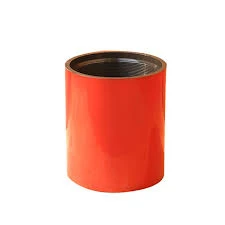- Afrikaans
- Albanian
- Amharic
- Arabic
- Armenian
- Azerbaijani
- Basque
- Belarusian
- Bengali
- Bosnian
- Bulgarian
- Catalan
- Cebuano
- Corsican
- Croatian
- Czech
- Danish
- Dutch
- English
- Esperanto
- Estonian
- Finnish
- French
- Frisian
- Galician
- Georgian
- German
- Greek
- Gujarati
- Haitian Creole
- hausa
- hawaiian
- Hebrew
- Hindi
- Miao
- Hungarian
- Icelandic
- igbo
- Indonesian
- irish
- Italian
- Japanese
- Javanese
- Kannada
- kazakh
- Khmer
- Rwandese
- Korean
- Kurdish
- Kyrgyz
- Lao
- Latin
- Latvian
- Lithuanian
- Luxembourgish
- Macedonian
- Malgashi
- Malay
- Malayalam
- Maltese
- Maori
- Marathi
- Mongolian
- Myanmar
- Nepali
- Norwegian
- Norwegian
- Occitan
- Pashto
- Persian
- Polish
- Portuguese
- Punjabi
- Romanian
- Russian
- Samoan
- Scottish Gaelic
- Serbian
- Sesotho
- Shona
- Sindhi
- Sinhala
- Slovak
- Slovenian
- Somali
- Spanish
- Sundanese
- Swahili
- Swedish
- Tagalog
- Tajik
- Tamil
- Tatar
- Telugu
- Thai
- Turkish
- Turkmen
- Ukrainian
- Urdu
- Uighur
- Uzbek
- Vietnamese
- Welsh
- Bantu
- Yiddish
- Yoruba
- Zulu
steel couplings for pipe
Steel Couplings for Pipe An Overview
Steel couplings are essential components in the piping industry, serving as critical connectors that join two pipes together, ensuring structural integrity and leak-proof performance. Available in various types, steel couplings are renowned for their strength, durability, and ability to withstand harsh environmental conditions. These characteristics make them suitable for a wide range of applications, including plumbing, oil and gas, chemical processing, and construction.
Types of Steel Couplings
One of the most common types of steel couplings is the threaded coupling. This type features internal threads that allow easy connection of two pipes by simply screwing them together. Threaded couplings are typically used in applications where pipes can be disassembled for maintenance or repair, making them particularly useful in plumbing and HVAC systems.
Another popular option is the welded coupling. This type is designed by welding the coupling onto the pipes, creating a permanent and robust connection. Welded couplings are ideal for high-pressure applications, such as those found in the oil and gas industry, as they offer superior strength and resistance to leaks. The welding process may involve techniques such as MIG (Metal Inert Gas) or TIG (Tungsten Inert Gas) welding, each providing different benefits based on the specific requirements of the application.
Socket weld couplings are also widely used, particularly in applications requiring high pressure and critical safety standards. They consist of a cylindrical socket used to receive the pipe, allowing for a smooth transition and strong bond when welded. These couplings are often favored in chemical and fuel processing systems due to their ability to prevent leaks effectively.
Material Considerations
steel couplings for pipe

The choice of material for steel couplings is crucial. Steel is favored because it provides excellent tensile strength and resistance to corrosion. However, not all steel is the same. Carbon steel, stainless steel, and alloy steel are various materials used for fabricating couplings, each offering unique advantages. For instance, stainless steel couplings are highly resistant to rust and corrosion, making them ideal for sanitary applications where hygiene is paramount, such as food processing.
Benefits of Steel Couplings
The use of steel couplings presents numerous benefits. Firstly, they provide excellent durability; steel is inherently strong and can withstand significant environmental stresses. This durability translates to reduced maintenance costs over time because steel couplings need less frequent replacement compared to those made from less robust materials.
Additionally, steel couplings can handle high temperature and pressure applications, making them versatile for several industries, including water treatment, irrigation, and power generation. Their capability to accommodate thermal expansion and contraction minimizes the risk of pipe failure or leaks.
Furthermore, steel couplings can be customized to suit specific project needs. They can be manufactured in various sizes, shapes, and configurations, ensuring they meet the precise requirements of different piping systems. This customization capability is particularly beneficial in industrial settings where standardized solutions may not be sufficient.
Conclusion
In summary, steel couplings are indispensable components in the piping industry, providing secure and reliable connections between pipes. Their strength, durability, and adaptability make them suitable for various applications across multiple industries. As technologies and materials continue to advance, the role of steel couplings will remain vital to maintaining safe and efficient piping systems. Ensuring proper selection and installation of these couplings is crucial for the longevity and performance of any piping system. Whether in construction, energy, or manufacturing, understanding the value of steel couplings can significantly impact operational efficiency and safety standards.
-
Well Casing Extension Couplings – Applications and InstallationNewsJun.06,2025
-
Types of Crossover Subs in Drilling & CompletionNewsJun.06,2025
-
Key Features of High-Quality Tubing Pup JointsNewsJun.06,2025
-
Installation and Maintenance Tips for Steel Couplings for PipeNewsJun.06,2025
-
How to Select the Right Pup Joint for Oil & Gas OperationsNewsJun.06,2025
-
Applications of Stainless Steel Pipe CouplingsNewsJun.06,2025







